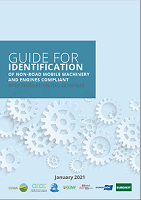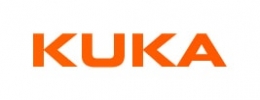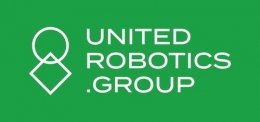
May 2017
Eurobarometer 2017: What Europeans really think about robotics!
This special Eurobarometer is designed to gauge public opinion in a range of areas related to digital technologies, robots and artificial intelligence. It follows on from previous surveys in this area in 2014 and 2012. It is important to note that the terms robots and artificial intelligence are used jointly throughout the survey without any differentiation.
Digital technology is having an increasingly pervasive impact on every aspect of economic and social life in the European Union, from the growing use of robots and artificial intelligence, to e-health and online public services. In an increasing digital world, it is important that citizens have the skills and confidence to make the most of these digital technologies and opportunities.
One aspect of digital technology – the use of robots and automation – has played a role in manufacturing for a number of years. Robots and artificial intelligence are increasingly being applied to other areas, such as drones for delivery, and the potential for driverless cars.
The use of robots has already revolutionised many aspects of manufacturing, and innovations here are continuing. The increasing use of robots and artificial intelligence in other aspects of work and home life is expected to have an even more profound impact on European society in the next decades. However, there are also concerns about the increasing impact of digital technologies in daily life, as well as potential future impacts of robots and artificial intelligence on jobs in particular.
Key Findings
Most of respondents are positive about the impact the most recent digital technologies have had on society, the economy and their quality of life.
- Three quarters (75%) think the most recent digital technologies have a positive impact on the economy, while 67% think these technologies have a positive impact on their quality of life and 64% think these technologies have a positive impact on society.
The majority consider themselves sufficiently skilled in the use of digital technology in a range of aspects of life and work. However, there are large differences in perceptions across countries, age groups or educational backgrounds
- 71% agree they consider themselves sufficiently skilled in the use of digital technology in their daily lives, while 65% consider themselves sufficiently skilled in the use of digital technology to use online public services and 64% say they are sufficiently skilled to benefit from digital and online learning opportunities.
- Amongst respondents who work, 80% believe they are sufficiently skilled in the use of digital
technologies to do their job.
Attitudes to robots and artificial intelligence are generally positive and depend greatly on the level of information received …
- More than six in ten have a positive view of robots and artificial intelligence (61%).
- The opinion on robot/AI depends strongly on the exposition to information/knowledge. Respondents who have heard, read or seen something about artificial intelligence in the last 12 months are more likely to have a positive view of artificial intelligence and robots (75% vs. 49% who have not).
- More than eight in ten respondents agree robots are necessary as they can do jobs that are too hard or too dangerous for people (84%), and 68% agree robots and artificial intelligence are a good thing for society because they help people do their jobs or carry out daily tasks at home.
…but respondents express the need for careful management and widespread concerns that their use leads to job losses
- Almost nine in ten agree robots and artificial intelligence are technologies that require careful management (88%).
- Almost three quarters agree that due to the use of robots and artificial intelligence, more jobs will disappear than new jobs will be created (74%), and almost as many agree robots and artificial intelligence steal people’s jobs (72%).
- More than four in ten respondents who are currently working think their current job could at least partly be done by a robot or artificial intelligence (44%).
A minority of respondents are comfortable with robots performing a range of tasks
- Although the majority of respondents have not used a robot at home or at work (85%), one third of them say they would be comfortable having a robot assist them at work (35%). This is a decline of 12 percentage points since 2014. More than one third are also comfortable with receiving goods delivered by a drone or a robot (35%).
- More than one quarter of respondents are comfortable with having a robot to provide them services and companionship when infirm or elderly (26%, -4 pp since 2014) or with having a medical operation performed on them by a robot (26%, +2 pp).
- 22% would be comfortable being driven in a driverless car in traffic.
Other important findings include:
- More than one third of respondents say they would be comfortable having a robot assist them at work (35%) – a decline of 12 points since 2014.
- More than one third are also comfortable with receiving goods delivered by a drone or a robot (35%).
- Just over one quarter of respondents are comfortable with having a robot to provide them services and companionship when infirm or elderly (26%), a decline of four points since 2014.
- Just over one quarter of respondents say they are comfortable with having a medical operation performed on them by a robot (26%, +2 pp).
- Respondents are least likely to be comfortable being driven in a driverless car in traffic (22%), with a further 17% saying they are moderately comfortable about this. The majority, however, are uncomfortable (58%).
 |
Conclusion
The results of this survey show respondents are generally positive about the impact of the newest digital technologies on society, the economy and on their quality of life. The majority also feel confident they have the necessary level of skills to make use of the opportunities these technologies provide for learning, as well as to use them in current and future jobs or to navigate online public services. Although more than eight in ten respondents have not used a robot at home or at work, over six in ten have a positive view of robots and artificial intelligence.
Respondents are, however, pessimistic about the impact robots and artificial intelligence have on jobs. Although a minority think their job could be done at least in part by a robot or artificial intelligence, more than seven in ten think they steal jobs, and cause more jobs to be lost than created. Respondents are also much less likely to say they would be comfortable having a robot assist them at work than they were in 2014.
Finally, the socio-demographic analyses show consistent patterns throughout the results. Men, younger respondents, those with higher education levels, those who use the Internet daily and those with less financial stressors are generally the most likely to be positive about their digital skills and the use of robots at work and in other aspects of life.
Industrious Brussels EU District, Avenue des Arts 6-9, 1210 Brussels, Belgium, +32 490 57 57 65
Transparency Register number: 0289344948-82














































































































